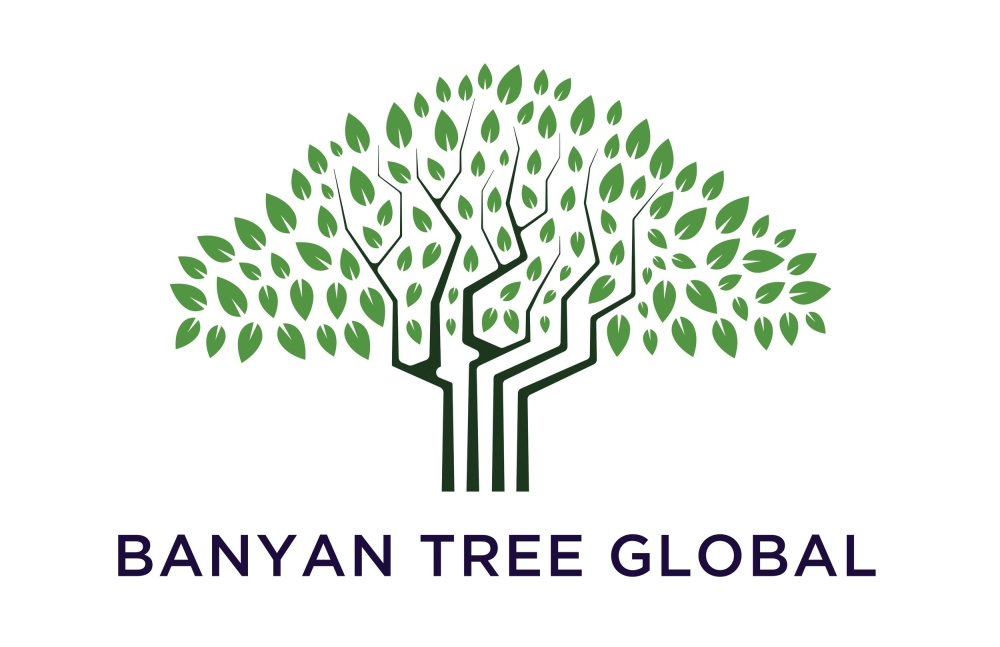Health, Gender, and Economic Benefits of India’s Swachh Bharat Mission
India’s maternal, infant, and child mortality rate and malnutrition crisis go beyond food scarcity to larger issues of poor sanitation. One decade ago, 52 million people in India were defecating in the outdoors. Open defecation is known to cause malnutrition by unsafe water, poor sanitation, and inadequate hygiene. Studies in India found high rates of child stunting, infant and child mortality, maternal deaths, lacking menstrual health and hygiene, school dropout, gender inequality, and beyond. In this time, India was losing billions of dollars a year, primarily through premature deaths of young children due to lack of toilets and improper sanitation.
In 2014, the Indian government took up the “Swachh Bharat Mission” (Clean India Movement) to build household and community toilets, improve solid waste management, achieve behavioral change towards sanitation and hygiene management, and improve both health and economic outcomes. In a decade, India has seen incredible declines in infant, child, and maternal deaths, as well as massive cost savings, reduced school dropouts, and improved menstrual health and hygiene. Swachh Bharat Mission (SBM) has also boosted gender equality, and economic benefits and innovations. Much can be learned from the successes of SBM.
Please join the Wilson Center’s Maternal health Initiative, in collaboration with Banyan Tree Global, for a panel discussion on the successes of SBM and the lessons learned that can be applied to other countries facing similar challenges related to sanitation and hygiene.
Selected Quotes from Speakers
Sanjeev Yadav, Founder, Chief Executive Officer, Banyan Tree Global
"The Swachh Bharat Mission is and was a vast undertaking of the world's largest sanitation program to provide every Indian access to toilets, eradicate open defecation, and affect child health and mortality rates and overall health and economic outcomes. Today, we can see and marvel how through effective policy, sound management, and communication strategies, this program turned into a mass movement that galvanized the youth of a nation, brought together all sections of society, and changed social norms and behaviors."
Shamika Ravi, PhD, Member, Prime Minister's Economic Advisory Council, India
"In 2014, there was sufficient literature to motivate going open defecation free. There was compelling evidence to show that [open defecation was] one of the leading causes of undernourishment, malnutrition, … including of course, the extremely severe metrics such as infant mortality or neonatal deaths. The pathways were very clear; fecal matter found its way into the water within the household that was used to bathe, to cook, and so on.”
“[Swachh Bharat Mission] is an operational research case study. It is also a management case study of how traditionally lethargic bureaucracy can be motivated when the outcomes or the targets are well defined, when funding is well allocated; when the management is also well monitored on a regular basis.”
"There is a lot of good research and extremely rigorous empirical work that has come out in the last few years, which have looked at the impact of the Swachh Bharat Mission on health outcomes, infant mortality, neonatal deaths, again, various metrics of malnutrition. But I think what I have personally found extremely exciting largely because we didn't expect it, and perhaps we should have in hindsight, is the impact it has had on the safety and security of girls and women across rural areas of India. In fact, if you look at the … National Crime Record Bureau data there is almost like an inflection point happening across every state in the country... And you see inflection, meaning a turn, in terms of the number of rapes, and assaults reported, and a large part of it is attributed to the fact that 120 million toilets did get built.”
"In many aspects of social change, we are seeing, or political change we are seeing, there is a reason that no political party, whether regional or national, can ignore women voters anymore. And I think a large part of it has to do with the fact that leaders who have their ears on the ground give back, and they do realize the preferences, the political preferences that they represent and particularly of women – in many ways, Swachh Bharat did respond to that very basic need.”
Sujoy Mojumdar, Senior Water, Sanitation, and Hygiene (WASH) Specialist, UNICEF India
"The couple of things I want to highlight is the huge involvement of women in the program, beginning from the women masons who helped in the construction of those 100 million plus toilets. We had micro-loans given to women's groups and women's collectives to help them build or repair their toilets. We had a Jan Andolan, or the mass involvement of the public, in the program which in rural areas was very much led by women and children. According to India's constitution, 50% of the local governments are actually reserved for women's participation. So, huge women participation in the Swachh Bharat Mission I think was one of the major reasons for his success. Sanitation issues in India have been a historical issue that has been faced with the issues of caste, class, and gender. I think this was a major change in the mindset of the people."
"UNICEF of course is a key partner in things like policy support, guideline preparation for the mission, and capacity building. One of the innovations which we managed to work with the government was to work on the global initiatives on community-led total sanitation [CLTS] to make the community approaches to sanitation. You know globally, especially in Asia and Africa, behavior change has been focused on the CLTS, but in many countries, we see people initially building very rudimentary facilities. I think the Government of India was very clear that they did not want to go into rudimentary facilities and wanted better and more durable structures to be built which were safe.”
"After the initial phase of Swachh Bharat Mission, Phase 1, which ended in 2019, there has been plenty of global interest and I think agencies like the World Bank and UNICEF and the [Bill and Melinda Gates Foundation] have played the role of spreading the successes from India… … we are seeing countries like Nigeria, Kenya, Ghana, and other countries have come and visited India and learned from what has worked.”
“Other than political leadership and massive community engagement, I think for me, the principal driving force for the Swachh Bharat Mission was the financial allocation. The government put the money where they were preaching. $18 billion U.S. dollars were spent on SBM 1, and another 18 billion is being spent on SBM 2. Safe sanitation is essential for health; public health is a public good, and therefore public money has to be spent. India did not wait for international funding, and in a country the size of India and the problems we had on sanitation, no amount of global funding would have ever supported this kind of program.”
Archna Vyas, Director of Program Advocacy and Communications, Growth, Opportunity, and Empowerment, Bill & Melinda Gates Foundation
“Swatch Bharat Mission has been a phenomenal program I can say with a great degree of confidence. The Gates Foundation has been working in India for over 2 decades now, close to 22 years, and a program of this scale and such massive improvement over five years, and then you know for the program to be maintained again in its next phase - such progress has been completely unprecedented. The attribution of the success of the program [is first and foremost] the ambition and the vision from the top which gets percolated down to communities. It is the governance of this program and the leadership that was demonstrated by the ministries that was phenomenal.”
“Despite the progress of the Swachh Bharat Mission, I would say about 3.5 billion people [globally] do not still have access to safe sanitation. The program that was implemented in India and the way that it was scaled over 5 to 10 years, which continues to get implemented, is really an exemplar for other countries in the world where safe sanitation is still not accessible. Our foundation focuses on sustainable safe services…there's so much of synergy between the program’s outcome and what we strive for, which is, you know, positive health, economic, as well as gender equality outcomes. There are huge synergies from what we are learning from Swachh Bharat Mission, and we continue to work in other geographies. This is really a role model."
"A program of this scale cannot be successful unless the community embraces it. There was a large focus on community engagement—swachhagrahis [frontline workers] were appointed—and they were really the volunteers at the village level who were mobilizing community to ensure that the program was getting implemented.”
“There is empirical evidence that entertainment plays an important role in terms of norm shifting, and therefore, how the two ministries engaged celebrities at a national level, but also creating celebrities at local level, at village level, so that they were embracing and there was a pride instilled, village after village, in terms of ownership of those behaviors as well. If you look at the entire program as I say, it is classic for me, it is beautiful in terms of studying program policies as well as, you know, behavior change, that at every level there was so much hard work that went in but followed very strictly with measures of accountability and measurement as well.”
Jaya Awasthi, Principle and Head of Skill Center of Excellence, Confederation of Indian Industry
“There's a lady, 100 years old, [who] for a century doesn't know what toilets are all about, there is nothing called a toilet in her vicinity. She walks every single day multiple miles into the open fields, maybe before sunrise so that nobody watches her, sees her, as if she's going to commit a crime. While she's going to relieve herself, she holds the hand of her granddaughter, walks down those fields and because of her age stumbles several times, falls, gets up again, stumbles, goes to the field, and relieves herself. Some stray motorcycle lights somewhere, she gets up because she's afraid that her granddaughter and her will not be able to sustain their dignity. That is a story that repeated itself over and over again - the granddaughter holding the hand of the grandmother, helplessly watching as she falls. But there's just nothing that be done till that one fateful day when the government officials arrived in a village and spoke about this mission called Swachh Bharat Mission which our honorable Prime Minister from the ramparts of the Red Fort had spoken about and the one statement that the dignity of a woman is everybody's collective responsibility.”
“We are rebuilding our national character. They spoke about sanitation, they spoke about toilets, and our 100-year-old protagonist takes this to heart and the emotion is so intense that she sells off eight of her goats. That's possibly all she had for her livelihood, and she builds the single toilet in that village, in her own home. That single gesture brought about such a revolution that within a few years hers was the one village that was free of open defecation, [had] clean roads, very minimal sexual assaults and a lot of dignity for the woman…when I talk about this, I have goosebumps, and that's how personal this mission has been. Everything is about the leadership, everything is about how a woman turned her circumstance into such a powerful narrative, from victimhood to empowerment.”
“When I reflect on a program of this order, there are only two things that can hamper or make it. One is the intent, the other is resources, right? In terms of the intent, sitting from the space that I do – private sector etc. – I’ve seen probably all the strata of women empowerment in my previous s experiences… I’ve never been so confident about the intent of the leadership under honorable Prime Minister Modi. I think when there is a mantra given to the country, it is followed to the last T. So, there is not a problem with the intent, I am very confident that that’s not going to be a showstopper. Now comes the resources. In terms of sustainability and maintenance of a program of this order, you do need a lot of participation. So, it’s heartening to see that the industry came together. There was a call for action for CSR – corporate social responsibility – the industry stepped forward.”
Moderator

Panelists




Hosted By

Maternal Health Initiative
Housed within the Wilson Center's Environmental Change and Security Program, the Maternal Health Initiative (MHI) leads the Wilson Center’s work on maternal health, global health equity, and gender equality. Read more


Indo-Pacific Program
The Indo-Pacific Program promotes policy debate and intellectual discussions on US interests in the Asia-Pacific as well as political, economic, security, and social issues relating to the world’s most populous and economically dynamic region. Read more

